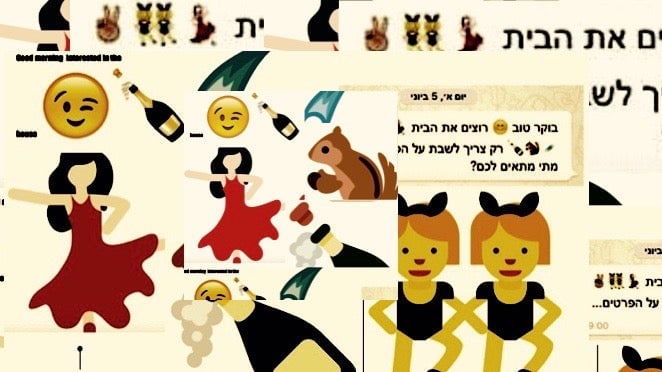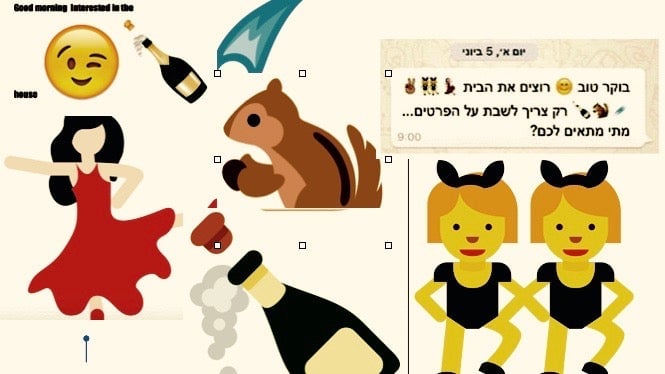Emojis prove intent, a judge in Israel ruled
Emojis have become an integral part of postmodern dialogue, so it’s only natural that the cute and convenient images are sneaking into lawsuits. For example, this symbol—😊—starred in a recent court case in Israel, perhaps foreshadowing the future of legal and linguistic interpretation.


Emojis have become an integral part of postmodern dialogue, so it’s only natural that the cute and convenient images are sneaking into lawsuits. For example, this symbol—😊—starred in a recent court case in Israel, perhaps foreshadowing the future of legal and linguistic interpretation.
⚖️ 😈

Here’s what happened. A landlord placed an online ad about his available apartment and exchanged texts with a prospective renter who seemed very interested.
The renter wrote, “Good morning 😊 we want the house💃🏻👯✌️☄️🐿️🍾 just need to go over the details…When suits you?”
They corresponded repeatedly and the landlord relied on these exchanges to remove his ad, assuming the apartment would be taken. But the prospective renters disappeared after a few days and the landlord later sued for damages, claiming reliance—a general principle of contract law, in Israel and internationally, that a party acting in reliance on another’s expressed and sometimes implied intent to agree to a deal may file suit if damaged when the other party doesn’t follow through.
🍾💃🏻
The happy exchanges between parties, with pictograms, indicated an intent to do business, according to the ruling by Judge Amir Weizebbluth in a Tel Aviv small claims court about the apartment deal gone awry. He wrote in the opinion:
The…text message sent by Defendant…included a smiley, a bottle of champagne, dancing figures and more. These icons convey great optimism. Although this message did not constitute a binding contract between the parties, [it] naturally led to the Plaintiff’s great reliance on the Defendants’ desire to rent his apartment…These symbols, which convey to the other side that everything is in order, were misleading.”
The positive emojis signaled interest, according to the judge, and the landlord reasonably relied on the defendants’ optimistic language, both pictures and words. Emojis, the court noted, are an integral part of modern communication, open to legal interpretation. The judge awarded the misled landlord 8,000 shekels, covering damages and legal fees, which amounts to about $2,200.
🌏😺
On the surface this ruling may seem silly. The smiley pictogram is internationally popular precisely because it’s simple for most people to understand, or so it seems superficially. One of the messages in question was supported with victory signs, champagne, a quilt of symbols that’s barely translatable but clearly positive. In fact, however, emoji in a legal context is very serious business.

Language interpretation is rarely simple upon close examination and lawyers can argue anything. Pictures give them a lot of room to do so.
Santa Clara University law professor Eric Goldman searched for 2016 cases in the US that dealt with emojis and emoticon and found about 80 judicial opinions that mentioned these.
He told The Recorder in May that he imagines that emoji interpretation issues will only get more common and could get very difficult. The images look different to each of us, and parties can have legitimately different understandings of an image used in an exchange.

A smiley may be wry or sincere, depending on the sender, and interpretations vary depending on the recipient’s personal disposition and culture. According to a Quartz story, “Chinese people mean something very different when they send you an emoji.” There’s apparently a whole secret sneering emoji sub-lingo in which smileys don’t necessarily indicate good feelings or faith.
Plus, there’s an endless array of smiley emojis, all signaling slightly different things. Depending on the context, could there be a legal distinction between 😀 and 😊?
📓 🖋️
And what a chipmunk symbol means in a real estate deal is anyone’s guess. The issue could come up someday soon in a courtroom near you.